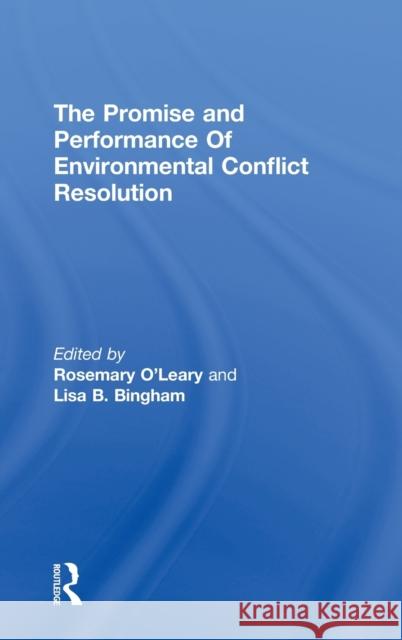Promise and Performance of Environmental Conflict Resolution » książka
Promise and Performance of Environmental Conflict Resolution
ISBN-13: 9781891853654 / Angielski / Twarda / 2003 / 400 str.
Promise and Performance of Environmental Conflict Resolution
ISBN-13: 9781891853654 / Angielski / Twarda / 2003 / 400 str.
(netto: 814,63 VAT: 5%)
Najniższa cena z 30 dni: 798,25
ok. 16-18 dni roboczych.
Darmowa dostawa!
Environmental conflict resolution is a process of negotiation that allows stakeholders in a dispute to reach a mutually satisfactory agreement on their own terms. The tools of ECR, such as facilitation, mediation and conflict assessment, suggest that it fits well with other ideas for reforming environmental policy. First used in 1974, ECR has been an official part of policymaking since the mid-1990s. This book systematically evaluates the results of these efforts. most experienced practitioners. Beginning with a primer about concepts and methods, the book describes the kinds of disputes where ECR has been applied, making it clear that despite the faith of proponents in the power and usefulness of ECR, it is not applicable to all environmental conflicts. The contributions that follow critically investigate the record and potential of ECR, drawing on perspectives from political science, public administration, regional planning, philosophy, psychology, anthropology and law. O'Leary and Lisa Bingham argue that truly effective use of ECR requires something more than advocacy. Their book provides scholars, policymakers, students and practitioners with critical assessments, so that ECR can be used to its best advantage.











